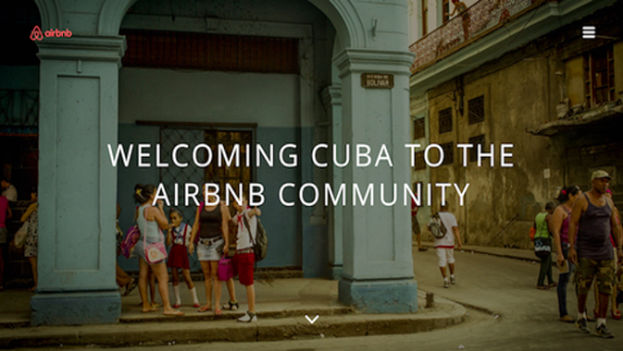
![]() 14ymedio, Luz Escobar, Havana, 6 April 2017 — Airbnb hosts in Cuba, who were so enthusiastic at the beginning, have been complaining recently about the delays in receiving the payments made by the tourists who have stayed in their homes. The discontent is clear from the complaints published on the platform of the American company and the interviews conducted by 14ymedio.
14ymedio, Luz Escobar, Havana, 6 April 2017 — Airbnb hosts in Cuba, who were so enthusiastic at the beginning, have been complaining recently about the delays in receiving the payments made by the tourists who have stayed in their homes. The discontent is clear from the complaints published on the platform of the American company and the interviews conducted by 14ymedio.
On the Airbnb site a couple claims to have experienced repeated delays in payments. “Between January and part of February 2016 we had a serious delay in receiving the payments through the agency VaCuba,” complained Ileana and Rolando, who have had problems again in early 2017. “We are already behind in the dates scheduled by Airbnb; we haven’t received the payments and right now we’re waiting on three more payments,” they explain.
The Miami-based courier company VaCuba, with headquarters in Miami, is in charge of bringing the payments to the hosts who rent out their homes, rooms and spaces through Airbnb. In any other country, these payments are made in the ordinary way through internet transfers, but the banking system in Cuba has hired this agency to send the cash to get the money to the Airbnb hosts.
The growth of Airbnb in Cuba during the last year has been remarkable, making it the country where the platform has grown the most thanks to the extension of licenses of that allows Cuban hosts to attract clients from all over the world, not only from the United States, like at the beginning.
Jorge Ignacio, an economics student who rents out a house in the town of Soroa, in Artemisa, told 14ymedio that in February of this year, “there’s nothing from Airbnb.” Now he says he’s “looking for alternatives” to collect for the stays of his guests because VaCuba, the only money distribution mechanism offered by Airbnb has collapsed, “because there are so many customers” and it can’t continue “counting the ‘kilos’,” he comments. “I get the full amount of the payment but always with a big delay,” said Jorge Ignacio, explaining that it’s not an isolated case “because the whole world is in the same situation.”
Rebeca Monzó, a Cuban artisan and blogger who has a room to rent in Nuevo Vedado, has a different complaint but adds to the discomfort generated in recent months. “The payment delay is almost a month, I never receive the full amount, they bring me 19 CUC when they actually owe me 500.” Monzó says that a messenger from VaCuba explained that “the Cuban bank is behind with the transfers” and that “it cannot get the full amount at once” and that is why they prefer to “make partial payments.”
“I wrote an email to Airbnb to comment on the delay of the payments and not only did they not answer me but they returned the message”
As a retiree, Monzó says the situation is not easy because she doesn’t see the result of her efforts and she only receives a fraction of what she spends on daily supplies that allow her to “maintain a functioning business.” The payments are not the only thing she needs to stay afloat. Monzó does her best to earn the good comments that clients place on her profile. Each morning she prepares the breakfast for her clients with great care and when they arrive at her house, she receives them with a welcome card she makes herself.
“I wrote an email to Airbnb to comment on the delay of the payments and not only did they not answer me but they returned the message. I have also asked other hosts who have been in this for a longer time and they have told me that it is not possible to receive the money by any means other than VaCuba.”
She says that Airbnb always makes the payment “in less than two days” and that the company notifies her by email. Monzó confesses that she does not want to leave the platform because “it is very safe” and sends “the type of clients that you ask for.”
“I refuse to take in the tourists just off the street because I do not want to take risks, I want it to always be through a company that guarantees me the seriousness of the customer,” says Monzó.
Other users of the platform say they have found a solution to the problem by using AIS cards to send and receive transfers, which can be found in any branch of the state-owned company Financiera Cimex.
“You can ask VaCuba to start sending the money to the AIS card,” explains an Airbnb host.
By the end of 2016, at least 34,000 self-employed people were engaged in renting homes to serve a growing number of tourists (4 million last year). To do so legally, they have to get a license and pay taxes, which are levied even when their rooms are not rented.
